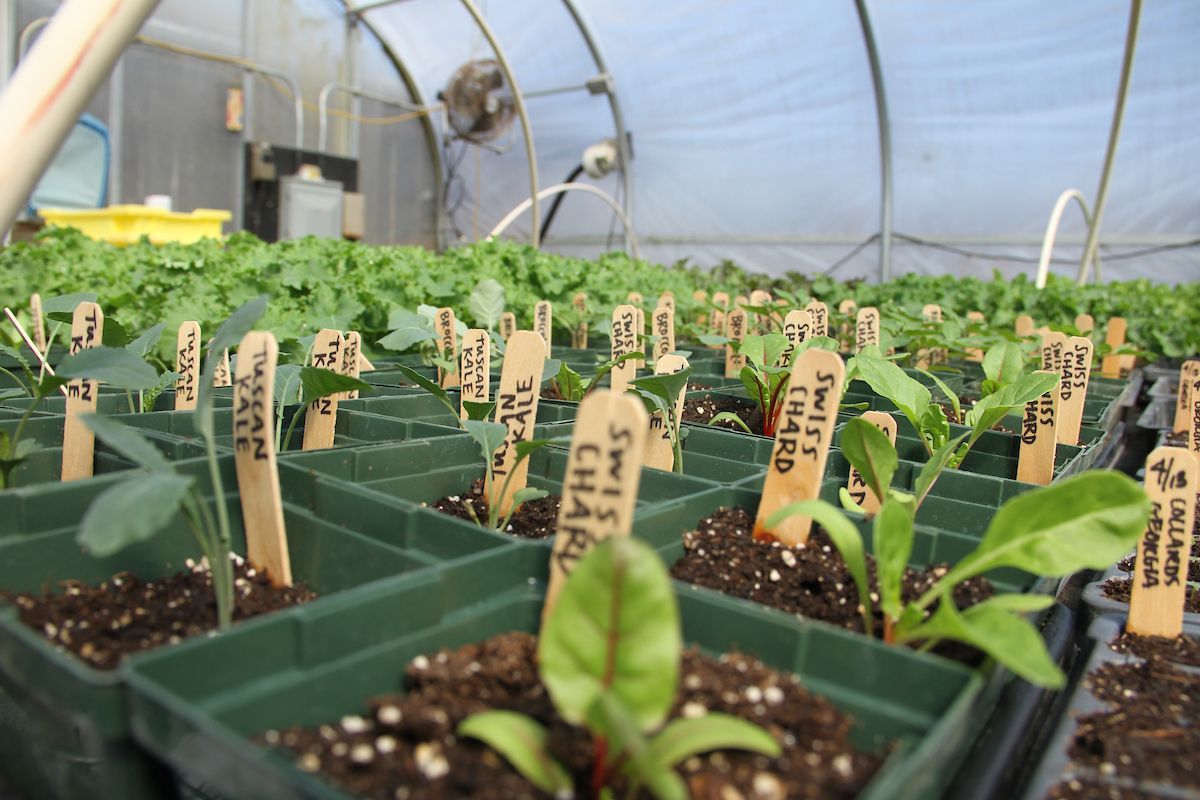
Here at Glynwood we grow our vegetables according to USDA organic standards, which means that we don’t use the broad-spectrum herbicides (or the genetically modified crops that often accompany them) that are so integral to conventional, industrial agriculture in our country. We also don’t use most of the pesticides and herbicide sprays that are available for organic growers. (Beyond adhering to the federal standards, this is more a matter of ideals about what food should be — trying to stay true to the spirit of organic growing rather than just the letter.) Altogether, our approach to growing means that the powerful, and toxic, tools of weed control developed by chemical agriculture are unavailable to us. Instead we have to rely on the long history of weed control that existed before the advent of the Green Revolution
When you think about how long humans have been growing vegetable crops — and so how long we have been fighting to keep weeds out of our fields — it begins to make sense why there are so many, many different tools invented for weeding. It ranges from the old classics (garden hoe) to some unexpected ones (flamethrower?), but often enough we find ourselves crawling across the field for hours pulling weeds by hand. Weed control is one of the primary areas that accounts for the difference in price between organic and conventional produce. We have to expend quite a lot of resources on both labor and equipment to keep up with weed pressure. Even if you’re the kind of person who might enjoy a bit of crawling around in the dirt, it gets old.
On the other hand, weed control in organic growing can be a very interesting, rewarding, and even inspiring challenge with the right frame of mind. To start, it’s important to move away from the idea that your goal is simply to kill weeds. Instead, we consider the field holistically, as a complex system with interactions we only understand in part. We use the term “weed seed bank” to convey that there is a stockpile of dormant seed in the soil that will germinate and grow depending on the time of year, the weather, soil disturbance, and so on. Our goal is to reduce the weed seed bank over the course of seasons by removing weeds before they can reproduce, hopefully locking into a virtuous cycle where fewer weeds come up each year, making it easier and easier to keep them under control.
Soil health is another seriously important factor — maybe directive number one in organic farming. Healthy soil yields delicious, nutrient-rich produce, and it also expresses fewer weeds. Weed species are often specifically adapted to grow well in depleted soils, to the point where you can diagnose a soil health problem based on seeing a lot of a particular weed.
And then there is the wide world of tools and equipment. There is a lot of innovation happening right now around weed control tools, even for small scale growers using “low-tech” equipment. Take hoes, for example. A hoe is really anything you attach to a handle and then use to physically kill or uproot weed plants. I was recently at a conference presentation given by organic farming pioneer Eliot Coleman where he described trying to invent a better lightweight, precision hoe. He had simply attached some stiff wire to a broom handle and experimented with different ways of bending the wire to achieve the optimal effect. Now you can buy that hoe online.
Take the flame weeder as one more example. The concept is to move a flame over the planted bed before seeds have germinated, heating the soil enough to “cook” emerging weed plants while not harming the crop seeds. When done correctly at the right time, this technique can give you a good head start on weeds in row with the crops, the hardest area to reach with most tools. The basic design we use is essentially a tiny propane tank with backpack straps that flows into a long-handled blowtorch — Ghostbusters style. Although a little scary to use at first, once you get the hang of it you feel like a superhero. Soon we are hoping to upgrade to a model with wheels and multiple torches to flame our beds more efficiently.
These are just a few examples out of our weed control playbook. There are a number of other tools we rely on, including those that mount to a tractor and work with less precision but on larger areas, allowing us to save our energy for more delicate work.
We will probably never have perfect weed control. Nature is doggedly persistent and we are still working to fine-tune our systems, find the right timing for each new planting, get lucky with the weather, test out new tools and techniques, and prioritize with an endless to-do list of farm tasks. But with a holistic approach, the problems are always complex and interesting, We know that if we can improve our fields a little bit each season, that the next one will be a little more manageable, and over time the fields will be healthier and the crops will be happier.

